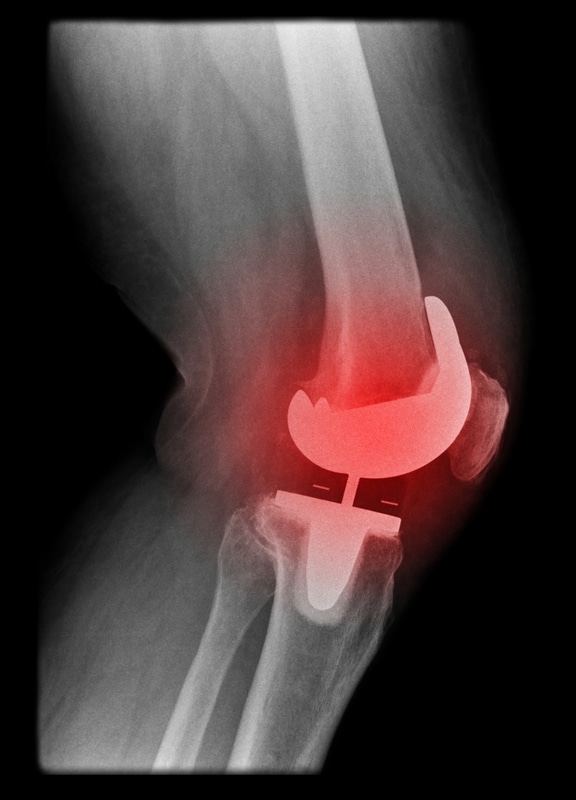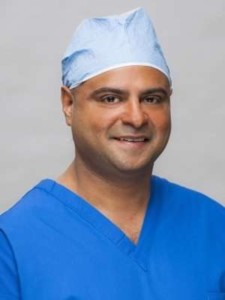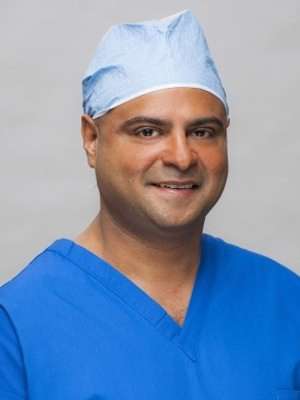Are you having problems with your knee implants? You might need revision surgery.

According to The Rheumatologist website, knee replacement revision surgery is expected to grow by 600% in the next five to ten years. Two of the major causes are plenty of younger people are getting prosthetics and more Americans are obese.
But there are other reasons why those who have a total knee replacement may require revision surgery:
Either the device has worn out or damaged, there is an infection, you have a periprosthetic fracture, or there is a buildup of excessive scar tissue that is causing stiffness.
The Procedure
Revision surgery takes longer than complete knee replacement since it is more complex. Your surgeon will have to first remove the old components, remove the cement (if any was used in the primary procedure), then prepare your bone surfaces for the revision implants, before inserting your new specialized prosthetics. All in all, it could take about 2 to 3 hours.
Before undergoing knee revision surgery, it is best to know what you should prepare for during recovery so recuperation can be faster and more successful.

Modular femoral component with a long stem
Revision knee replacement may require the use of special implants with attachments for stem and bone augments. The modularity of these implants helps the surgeon to achieve far greater stability than traditional implants.

Modular tibial tray with metal bone augments
Hospital Recovery
It may take a longer time to recover from the revision as compared to the initial replacement procedure. Although, the type of care required is almost the same.
Your doctor will prescribe pain management medication, including non-steroidal anti-inflammatory drugs (NSAIDs), opioids, and local anesthetics to help with short-term pain relief after your surgery. Make sure to use these as directed by your physician, and to inform your specialist if the pain doesn’t improve within a few days after your knee revision.
Before or after the procedure, you may also be given antibiotics since the risk of an infection tends to be higher for revision surgery compared to initial arthroplasty.
Physical therapy will be a helpful part of the recovery process as it helps to restore your range of motion and strengthen your leg. Physiotherapy exercises are crucial so you can get back to walking and doing other daily activities the soonest.
Your doctor may also recommend blood thinners, special compression stockings, and inflatable leg coverings. These are helpful in preventing blood clots and decreasing swelling in your leg.
You may be discharged 3 to 5 days after your knee revision surgery. You can then continue recovering at home or at a rehabilitation facility, depending on your needs. You will most likely leave the hospital using crutches or a walker. If your progress is going well, you can switch to a cane typically after 6 weeks.
Home Recovery
Before having your revision, make sure to prepare your house so you can move with ease and efficiency post-surgery. You can install rails in the shower and beside the toilet.
If your bedroom is upstairs, transfer your sleeping quarters temporarily downstairs. This way, you won’t have to keep on using the stairs to get to your bedroom.
It also helps to have someone visit or live with you while you are recovering so somebody can assist you with everyday tasks that you might still find challenging.
Make sure to take good care of your knee revision wound to avoid developing an infection. Follow your doctor’s instructions so you don’t risk getting blood clots and other complications. Also, don’t miss your appointment when it is time to take out the stitches or staples.
Continue with your physical therapy at home so you can keep on strengthening your body and improving your mobility. If it is still difficult for you to get around, your therapist can come to your home for your sessions.
Get the Best Knee Revision Doctor
It is important to find a surgeon who has the skills and experience of performing successful knee revision replacement procedures.
Dr. Nakul Karkare is a distinguished orthopedic surgeon who owns and operates multiple clinics throughout New York and Long Island.
He has an extensive experience in revision knee replacements and provides patients with the broadest array of safe and effective treatment options for pain relief and other symptoms.
How Can Dr. Karkare Help You?






